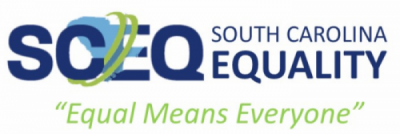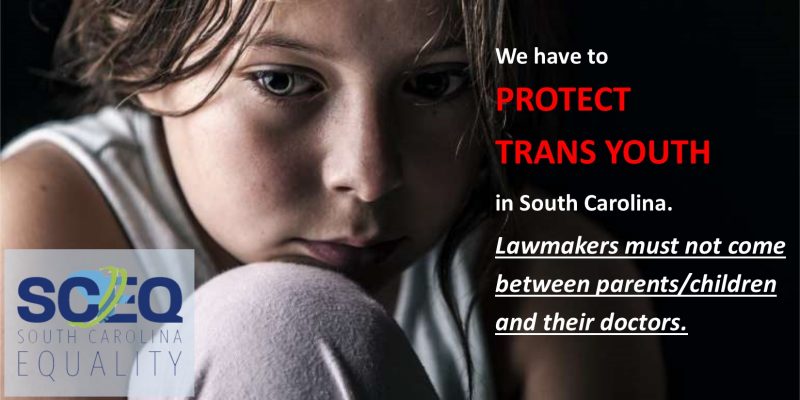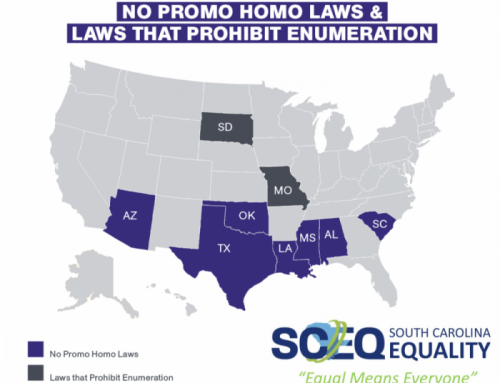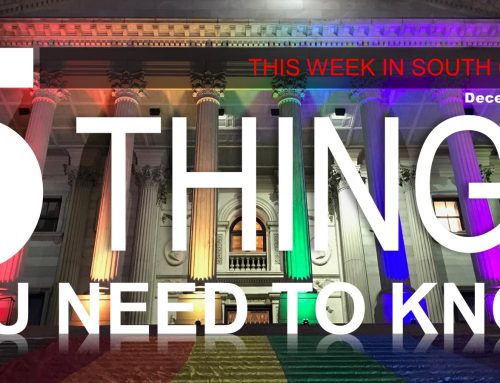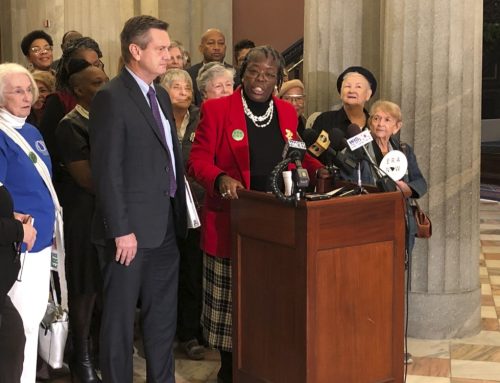Trans children have been in the national spotlight in recent weeks, with the governor of Texas stepping in to try to stop a mother from allowing her child to transition. And last Wednesday, South Carolina legislators joined in with a bill that would ban a variety of medical treatments for trans children in our state.
The bill, called the Youth Gender Reassignment Prevention Act, prohibits doctors from performing any “gender reassignment medical treatment” on a person under 18. Proposed by state Rep. Stewart Jones, a Republican, the bill isn’t just about surgery, which is uncommon for patients under 18 in any case. It would also ban hormones and puberty blockers, a reversible treatment that stops the physical changes associated with puberty. And it would prohibit doctors from performing “interventions to alleviate symptoms of clinically significant distress resulting from gender dysphoria,” or conflict between a person’s assigned gender and their gender identity.
The proposed legislation has an exception allowing mental health counseling. But the bill is so broad it could could ban “interventions” like allowing a child to dress in accordance with their gender identity.
Pre-filed during a recess in the South Carolina legislature, the bill won’t get a hearing until January at the earliest and we have already began talks with legislators, along with reactivating our coalition partners who helped SC Equality defeat the transgender bathroom bill several years ago. We will not allow this bill to advance without a major political fight. It’s part of a larger trend around the country, with lawmakers in Texas, Georgia, and Kentucky floating bans on medical care for trans youth. If passed, such laws are likely to harm trans youth, who are already at high risk of suicide and depression, by cutting off access to the care they need.
We will not allow this bill to advance without a major political fight.
Around the country, the care doctors recommend for trans children varies by age. Before puberty, they typically perform no medical interventions at all. Rather, most major medical associations recommend the “affirming method” for young children who may be trans, allowing them to experiment with different pronouns or gender presentations as they wish.
If a child is entering puberty and has been consistent in their gender identity for several years, a doctor may prescribe puberty blockers to halt the onset of puberty until the patient can make a decision about more permanent treatment. Later, if their gender identity remains consistent, they may start cross-sex hormones to bring on puberty consistent with their identity.
The South Carolina bill would appear to ban both puberty blockers and cross-sex hormones. And because it bans interventions “to alleviate symptoms of clinically significant distress resulting from gender dysphoria,” it could ban the affirming method as well, preventing doctors from, for example, recommending that parents allow a child to dress or wear their hair in a way consistent with their gender identity.
The bill has an exception allowing “behavioral health care services, such as mental health counseling” for gender dysphoria. However, the language of the bill is so wide-ranging that it could even ban medication for depression or other mental health conditions associated with dysphoria.
In one recent study, over 50 percent of trans male teens said they had tried to end their own lives, along with nearly 30 percent of trans female teens.
And overall, the ban could be very dangerous for trans young people, who are already at high risk of attempting suicide. The bill is essentially state sponsored deadly violence against trans kids and it must be defeated.
Make your voice heard today by opposing the Trans Youth Reassignment Prevention Act.
